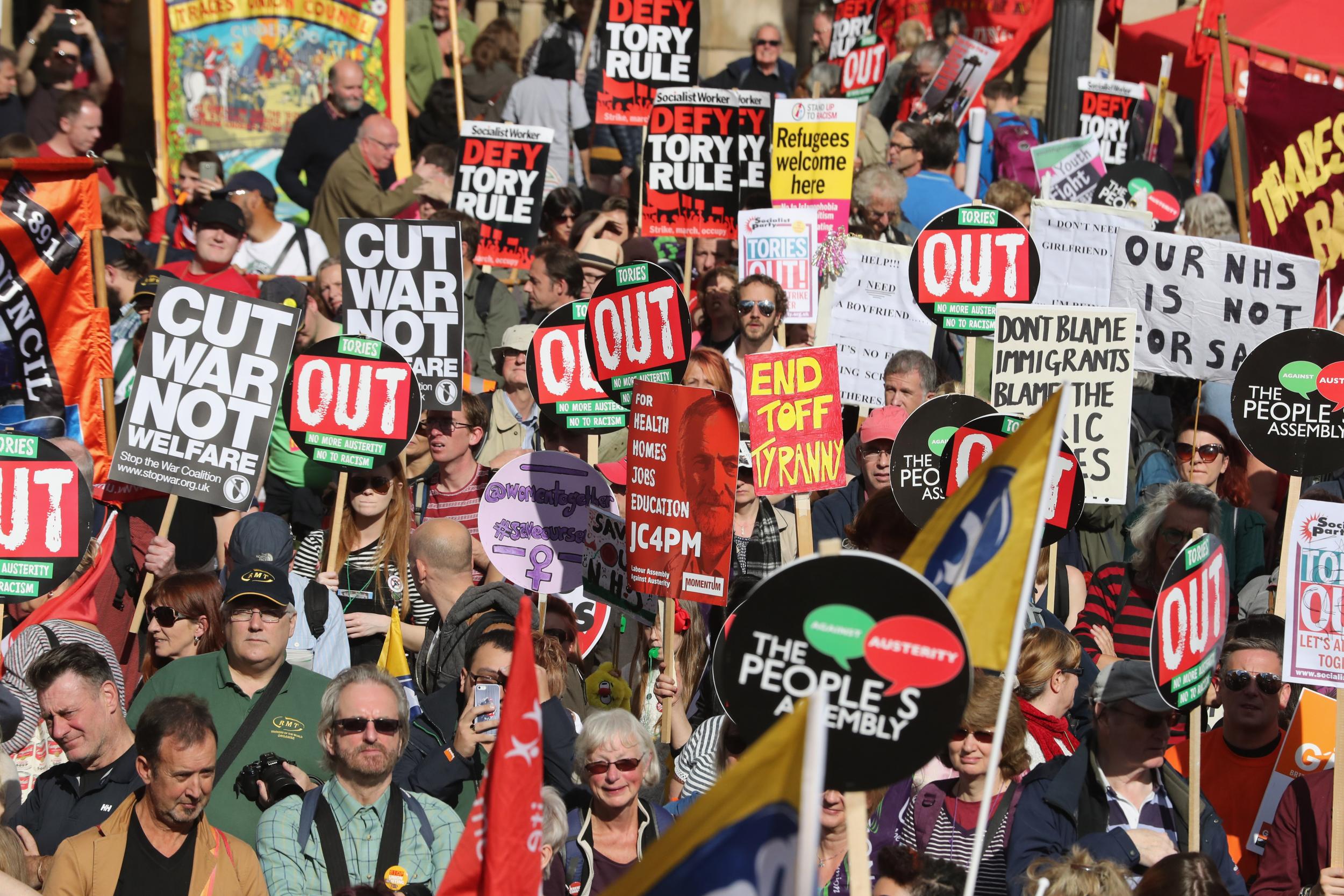Years of austerity 'have left UK with same level of public spending as it had 10 years ago' says IFS
The Institute for Fiscal Studies finds spending is no lower as a share of national income than it was after 11 years of a Labour government

Your support helps us to tell the story
From reproductive rights to climate change to Big Tech, The Independent is on the ground when the story is developing. Whether it's investigating the financials of Elon Musk's pro-Trump PAC or producing our latest documentary, 'The A Word', which shines a light on the American women fighting for reproductive rights, we know how important it is to parse out the facts from the messaging.
At such a critical moment in US history, we need reporters on the ground. Your donation allows us to keep sending journalists to speak to both sides of the story.
The Independent is trusted by Americans across the entire political spectrum. And unlike many other quality news outlets, we choose not to lock Americans out of our reporting and analysis with paywalls. We believe quality journalism should be available to everyone, paid for by those who can afford it.
Your support makes all the difference.Despite years of painful austerity, the UK’s level of public spending is today no lower as a share of national income than it was after 11 years of a Labour government in 2008, according to a report by the Institute for Fiscal Studies.
The major report from the UK’s leading economic think tank shows that deep cuts have left the NHS, schools and prisons in a “fragile state”, and have merely returned public spending to pre-financial crisis levels.
The document presents a challenge to claims that Conservative-driven austerity saved the public finances following years of Labour overspending.
The think tank’s report goes on to conclude that in the light of the data, Chancellor Philip Hammond’s plan to abolish the UK’s deficit by the mid-2020s is “no longer sensible”.
With his critical Budget approaching in November, it challenges him to admit the target looks “increasingly unlikely” in the light of a worsening economic outlook, exacerbated by Britain’s “terrible” productivity and uncertainty over Brexit.
The IFS analysis of public spending levels appears in its pre-Budget look at the Chancellor’s options published on Monday.
It found public spending as a share of national income was at a similar level both now and shortly before the financial crash, an event David Cameron and George Osborne claimed Labour overspending left the country ill-prepared for.
In 2007-08, public spending as a share of GDP was 39 per cent, it peaked in 2009-10 at 45.1 per cent and is forecast to be 39.6 per cent this year, according to the IFS.
The main justification for austerity has been the need to reduce and eventually abolish the deficit, a target that the IFS refers to as “ever-receding”.
The IFS argues Mr Hammond’s critical budget speech next month, will be given against a backdrop of a worsening economic outlook that demands austerity goals are rethought.
The key to the “significantly worsened” fiscal forecasts expected in November, leaving the Government less money to play with, is the UK’s “lower productivity growth” coming off the back of seven years of “terrible” growth.
The report argues Mr Hammond will also find it difficult to raise new money from taxes given the “political arithmetic” that exists following an election which left the Tories without a solid Commons majority.
The Chancellor also faces huge pressure to ease the Treasury’s purse strings, including demands to boost universal credit welfare payments, increase public sector pay and spend more on defence.
The IFS report said: “It looks like [Mr Hammond] will face a substantial deterioration in the projected state of the public finances.
“He will know that seven years of ‘austerity’ have left many public services in a fragile state. And, in the known unknowns surrounding both the shape and impact of Brexit, he faces even greater than usual levels of economic uncertainty.”
It goes on: “Given all the current pressures and uncertainties – and the policy action that these might require – it is perhaps time to admit that a firm commitment to running a budget surplus from the mid-2020s onwards is no longer sensible.”
The body sets out areas where continuing austerity is having its greatest impact on services, citing “clear signs of strain” in the NHS.
It adds: “Both the four-hour A&E target and the 18-week waiting period target are being missed nationally.
“The indicators paint a worrying picture for prisons, which, unlike the NHS, have seen large real-terms cuts (over 20 per cent) since 2009-10.
“Statistics compiled by the Institute for Government show that while the prison population is at roughly its 2009 level, staffing is down and violence (both against fellow prisoners and prison staff) and prisoner self-harm rates are on an alarmingly steep upwards trajectory.”
The report goes on to note how the Chancellor has already abandoned the blanket public sector pay cap and may decide to give more people a pay rise.
The Shadow Chancellor John McDonnell said: “The IFS have today confirmed seven years of Tory austerity policies have failed to drive up investment and productivity, with serious potential consequences for the public finances.
“Tory economic failure means wages and salaries are lower today than when they came to power, and still falling, whilst their mishandling of Brexit is now also adding to the uncertainty around future borrowing plans.”
The Independent contacted the Treasury for comment.
Join our commenting forum
Join thought-provoking conversations, follow other Independent readers and see their replies
Comments